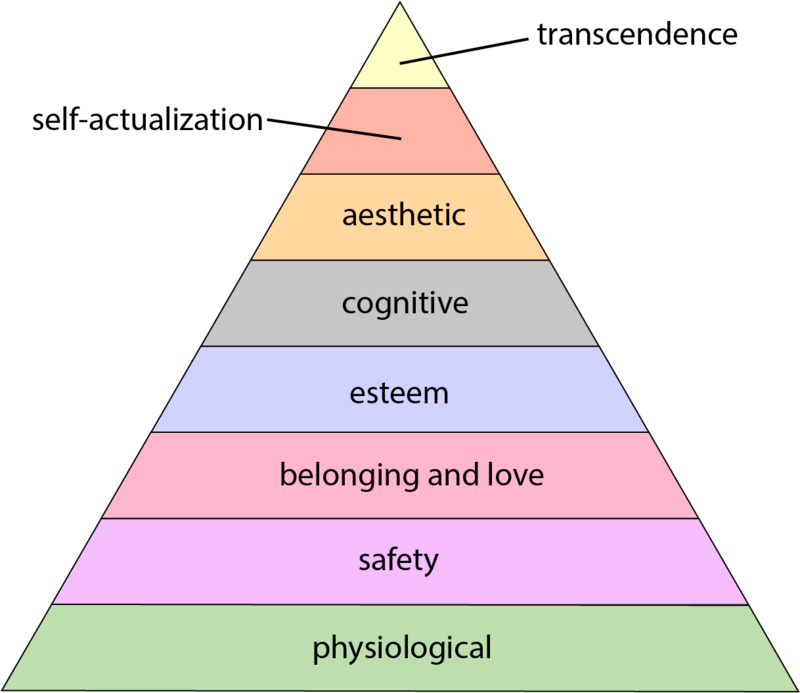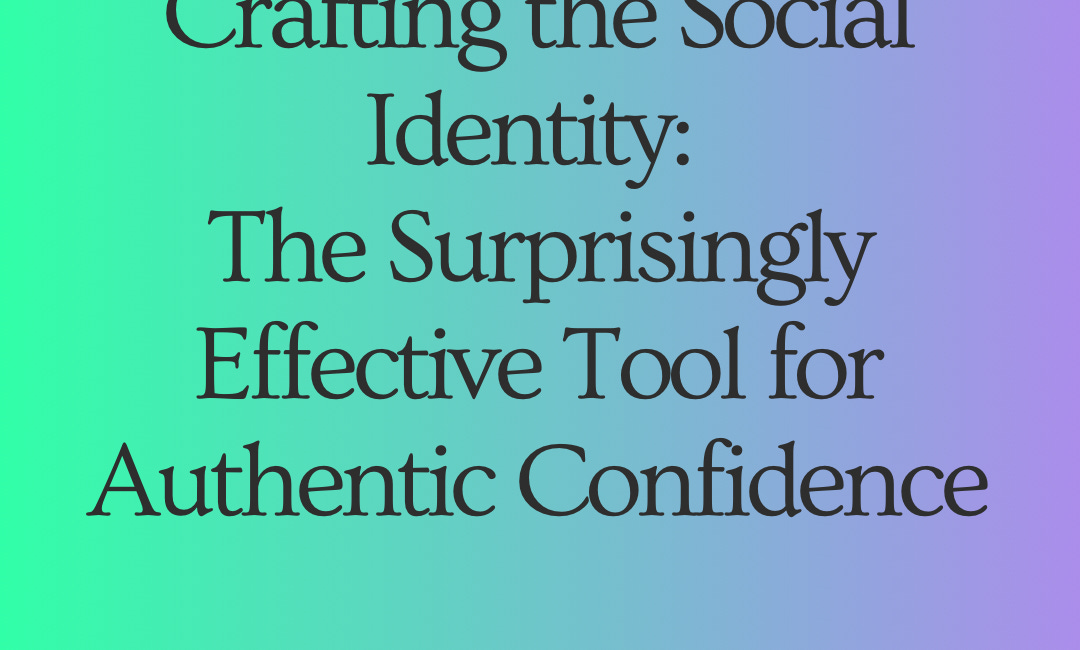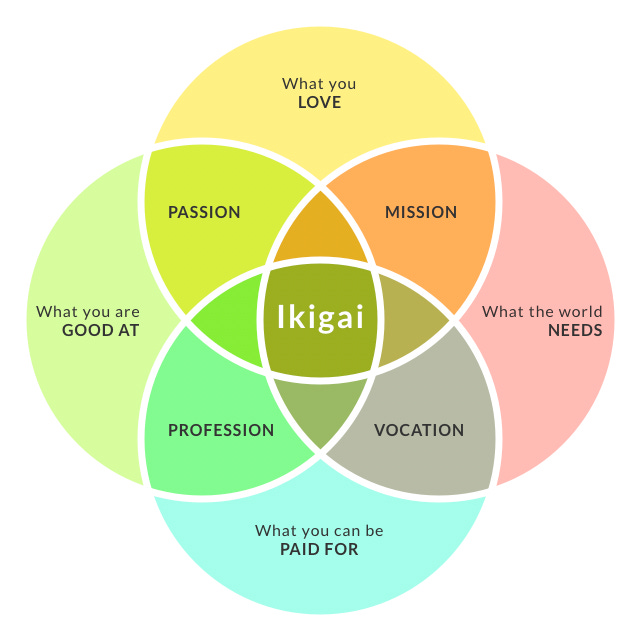How to Find Our Purpose with the GPS Framework
A simple, question based framework to help us connect to and live our purpose more deeply.
If you like reading this article, feel free to click the ❤️ or 🔄 button on this post so more people can discover it on Substack 🙏
If we want to fulfill our potential as a leader and human, we need to look for goals that are greater than these “ends.”
In my experience, a clear connection to our purpose is one of the most sustainable sources of motivation available to us. Even if we “know” what our purpose is, there is great power in taking the time to write it down and articulate it clearly for ourselves.
Have you ever heard of Maslow's Hierarchy of Needs? In 1943, Abraham Maslow synthesized one of the most well-known theories in the history of human development. In a nutshell, he believed that human needs were hierarchical. To fulfill a higher need on the chart, we must first satisfy the more basic need. We start at the bottom with physiological needs like water, food, and safety, and work our way up to the very top with self-actualization, fulfilling our potential.
Well, did you know that this theory, one of the most widely recognized and revered, is not taught as Maslow intended it in most schools and universities around the United States to this day? That’s right.
After Maslow published his theory in 1943, it garnered wide acclaim and criticism. As his theory rose to prominence, Maslow shared his frustration at the thought of self-actualization being the final need in his pyramid because he felt it was inherently selfish and fleeting.
From Maslow’s personal journal, published posthumously: “I realized I’d rather leave it behind me. Just too sloppy & too easily criticizable. Going through my notes brought this unease to consciousness. It’s been with me for years. Meant to write & publish a self-actualization critique, but somehow never did.”
What most people don’t know is that nearly 30 years after publishing his Hierarchy of Needs, Maslow developed a friendship with another man who cared deeply about human motivation, Viktor Frankl.
Frankl was the author of 'Man’s Search for Meaning,' the best-selling, autobiographical account of his time in Nazi concentration camps during WWII. He was also a world-renowned psychotherapist who created logotherapy, which pegged meaning as the central driving force of human development.
It was only after a conversation between friends that Maslow realized precisely why his theory was incomplete and how it needed to change once and for all…
“Self-actualization is not a possible aim at all; for the simple reason that the more a person strives for it, the more they would miss it. Only to the extent that people commit themselves to the fulfillment of their life’s meaning, to this extent do they also actualize themselves. In other words, self-actualization cannot be attained if it is made an end in itself, but only as a side-effect of self-transcendence.”
While Maslow never formally amended his hierarchy of needs, his journal entries make it quite clear that this model with 6 tiers felt much more representative of his true beliefs.
So, if we want to actualize the self, we need to transcend the self. How do we do that? By clearly articulating and serving our purpose. I define purpose as “a deep commitment to the service of something greater than ourselves.”
There are many intellectuals and business thought leaders who speak eloquently about finding purpose and its value as a motivating force. However, I have found far fewer who focus on proactive insight and frameworks to help us define and express our purpose in our lives practically. That’s what I intended to do with the GPS framework for finding purpose.
If you're in your car and need to find your way to your destination, what do you use? GPS.
If you are unsure of what your purpose is, here's a different type of GPS that you can use to connect to some goals that add meaning and direction to your life.
G - Goals
P - Passions
S - Skills
Here are three questions that will help you move closer to purpose in your own life. I would suggest that you write your answer down and keep them handy for a GPS document that will evolve and grow as you life unfolds.
Goals - What are my most important goals?
This relates to what you want to achieve. It could be running a marathon, buying a house somewhere, or getting a dream job. You can break them down into 10, 3, and 1-year sprints if helpful. Simply taking the time to write down specific examples of things that I want to achieve will give me an idea of where we want to allocate our energy.
When we are focused on achievement, it is VITAL that we pair that with an understanding of why we want it. I often find it helpful to ask ourselves a follow-up once we have our list. “How do I tell myself I will feel after I have achieved this goal?” Neville Goddard once said that “everyone is doing what they are doing because of how they think it will make them feel.” When we are clear on the emotion we are chasing, we can often get more tactical about what actions will help me achieve that emotional state more quickly.
It is also helpful to get clear on our values and any unconscious beliefs we may be holding about ourselves. This unconscious identity is important to reconcile to ensure that our goals are not something that we have been conditioned to want for unaligned or unimportant reasons. You can use my Social identity exercise for that.
Crafting the Social Identity - The Surprisingly Effective Tool for Authentic Confidence
“At the end of the day, people will do the things that align with who they think they are.” - William Alexander (Father of modern psychology) Relational Leadership with Andrew Horn is a reader-supported publication. To receive new posts and support my work, consider becoming a free or paid subscriber.
Passion - What brings me energy or inspires me?
What do I do that is intrinsically rewarding? To identify our passions, I always encourage people to think of the Three C’s:
Causes - What are the causes that you care about (i.e., environmental, social justice, education, etc.)
Communities - Who are the groups of people that you are called to support? This could be a fraternity or sorority, entrepreneurs, or your local government.
Curiosity - What are the things that you enjoy learning about in your free time?
Skills - What do I want get really good at?
What skills would I like to be known for? These could be athletic, artistic, or professional, etc.
For me, this includes public speaking, communication, group facilitation, experience design, leadership, writing, surfing, sex, parenting, and coaching.
It is most important to think about the skills that are intrinsically motivating and interesting to you. Then, it can be helpful to think about which ones you would like to be known for as this often has relevance for turning passion and purpose into vocation.
Turning purpose into profession
I find the Japanese practice of Ikigai can be a useful tool to take our exploration of purpose into the realm of the professional. The Japanese did not intend it that way; they use it more as a life mapping tool to identify purpose and meaning… the profession piece is definitely more derived from Western influence and promulgation. Ikigai is a confluence of four critical streams: your passion (what inspires you), your mission (what the world is yearning for), your vocation (what you excel at), and your profession (what sustains you financially).
By introducing the question of “how would I like to make money?” or “what do people pay me for?” we are more capable of seeing where there may be some overlaps between four sections. Another helpful question to ask ourselves on the journey of turning our purpose into a profession is simply asking ourselves, “who is making money and serving a similar purpose to me?” “Who is already doing what I would like to do?” Once you have identified these people, reach out to be of service. Offer your time, skill, and talent to support their mission and your shared purpose. This is the most effective way to build new relationships and get your foot in the door.
In conclusion…
When it comes to finding your purpose, I think it is most meaningful to think of it as an exploration, instead of a question and answer dynamic. I often reference the Rilke quote…
“Be patient toward all that is unsolved in your heart and try to love the questions themselves, like locked rooms and like books that are now written in a very foreign tongue. Do not now seek the answers, which cannot be given you because you would not be able to live them. And the point is, to live everything. Live the questions now. Perhaps you will then gradually, without noticing it, live along some distant day into the answer.”






I've never asked myself "what skills would I like to be known for?" Pretty simple and profound!